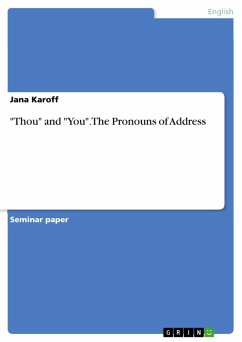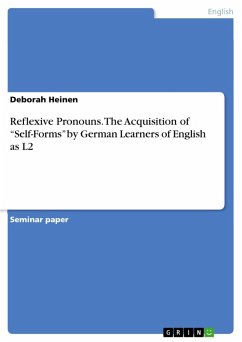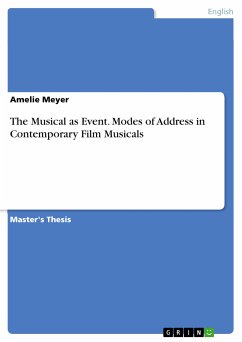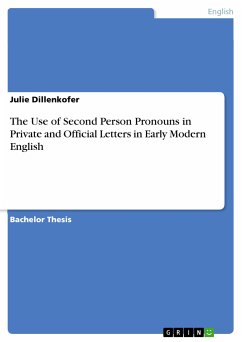Seminar paper from the year 2014 in the subject English Language and Literature Studies - Linguistics, grade: 1,0, University of Mannheim (Lehrstuhl für Anglistische Linguistik), course: Diachronic Linguistics, language: English, abstract: The diachronic development of the English language is marked by the loss of nearly all inflections - except for the pronouns' inflections. When comparing the Modern English pronoun paradigm to the Old English one, especially the personal pronouns are worth looking at. For a native German speaker, it stands out that in Modern English both "Du" and "Sie" are translated with only one word, you. In English, there seems to be no distinction between familiarity and politeness in the second person pronoun. This is true for Modern English, but not for earlier forms of English. It is interesting to see that between Early Modern English and Modern English the thou, which would be translated into German as "Du", was gradually lost and replaced by you, the former "Sie". This paper will have a closer look at the Early Modern English distinction between thou for close personal relationships as well as differentiation between upper and lower class, and you for impersonal relationships, politeness and respect in Drama. The following chapter will explain what a pronoun is and more precisely also define the term personal pronoun. The third chapter will introduce and contrast various values of the second person pronouns thou and you and how their use is distributed during the Early Modern English Period. In the fourth chapter, this theory will be used to analyse sections from "Hamlet" by William Shakespeare. It will take a closer look at which characters use thou and you, why they do it and what that reveals about the characters themselves and their relationship to the character they talk to. The paper will end with a conclusion about the covered theory and analysis.
Dieser Download kann aus rechtlichen Gründen nur mit Rechnungsadresse in A, B, BG, CY, CZ, D, DK, EW, E, FIN, F, GR, HR, H, IRL, I, LT, L, LR, M, NL, PL, P, R, S, SLO, SK ausgeliefert werden.









